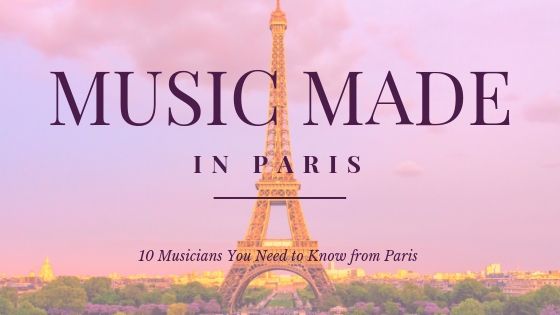
Edith Piaf
Perhaps the most unforgettable voice of the century, La Môme Piaf (or the Little Sparrow) donned a little black dress that she asserted helped audiences focus more on her singing and less on her appearance. Ties with mobsters, car accidents, memory loss, fatigue, voice loss and drug treatment programs were just a few reasons for the decline of her well-established singing career. Regardless, she never regretted anything; so attested by her chart-topping single ‘Non, je ne regrette rien’. Discover her story at the Musée Édith Piaf in Paris.
Maurice Chevalier
The suave Maurice Chevalier learned English as a prisoner during World War I, which held its advantages in Hollywood and London compared to other up-and-coming French artists. Once the art of seduction was mastered, he donned a tux and a boater hat, which earned him the title of ‘The French Lover’. With an Academy Honorary Award for the 1958 musical Gigi (directed by American stage director Vincente Minnelli), he is considered a major artist and contributor to France’s cultural heritage.
Sacha Distel
This 1950s Parisian jazzman and frequent entertainer at Le Caveau de la Huchette, the underground cradle of Parisian jazz music, had an immense passion for the genre. Distel ditched the prestigious piano lessons for the guitar after seeing a concert by jazz trumpeter Dizzy Gillespie. He then took guitar lessons from the renowned Henri Salvador. As a freshman, he joined his school’s Dixieland music band, Noise Makers, which drew inspiration from New Orleans jazz bands. France was very hostile to Distel’s version of jazz music. But when the French crooner sang ‘La Belle Vie’, it went on to become one of the country’s famous classic jazz hits. Catch Paris’s very own annual jazz fest at Jazz A La Villette in September.
Charles Aznavour
Charles Aznavour was castigated for his voice, his height, his gestures, his lack of culture and education, and his honesty. But ‘France’s Frank Sinatra’, the former personal assistant and manager of French singer Edith Piaf, didn’t let music industry critics get the best of him. Instead, he endeavoured to sing until his throat was sore. His recurring song themes include love, nostalgia and sensuality. Notably, his song called ‘Après l’Amour’ (After Making Love) was banned after it was deemed too immoral. After a period of civil unrest in France in May 1968, his song, ‘Comme ils dissent‘ (As They Say), touched on the subject of homosexuality and its taboos when it was released later in 1972. He also earned the honour of Entertainer of the Century in 1998.
Brigitte Bardot
Nicknamed ‘Little Doe’ during her aspiring ballerina years at Paris’s prestigious National Conservatory of Music and Dance, ’50s and ’60s French sex symbol and fashion icon Brigitte Bardot (also known by her initials B.B) solicited Serge Gainsbourg (an influential figure in French popular music) to compose ‘the most beautiful love song he could ever imagine’. Upon his muse’s request, Serge wrote ‘Je t’aime…moi non plus’ (I love you…me neither). But the prominent pop duet, with its explicit lyrics and cues of sexual orientation, was deemed too risqué and the single was withdrawn from release.
Serge Gainsbourg
Eccentric, unshaven, a chain smoker, a provocateur and a disillusioned painter, Gainsbourg attended Paris’s distinguished École Nationale Supérieure des Beaux-Arts (the National School of Fine Arts) and earned his living as an unknown piano player in Parisian bars. He was rejected by the public and critics for his lack of looks but found his place in the Left Bank’s confluence of artists, musicians, writers and philosophers. His lyrics are now studied in French schools and his Parisian residence, La Maison de Serge Gainsbourg, remains a celebrated shrine covered in graffiti by zealous fans.
Johnny Hallyday
Kicked out of clubs and cabarets for singing new American music, he introduced American rock’n’roll to the French and helped it conquer France. Playing at France’s first rock festival in 1961, his major hit ‘Souvenirs, Souvenirs’ (Memories, Memories) led to a near-riot with a ban on rock’n’roll shows for a few months. American rock hits mixed with traditional French pop established him as a full-fledged teen idol. Music genres such as psychedelic rock, soul, blues, ballads, country and rhythm & blues also piqued his interest. Known as ‘The French Elvis’, he’s ranked among France’s greatest cultural icons.
Françoise Hardy
Françoise Hardy received her first guitar for her 17th birthday, and by 18 had quit her studies at Paris’s Sorbonne and released her first record, ‘Oh Oh Chéri’. She later also released her European hit song ‘Find Me A Boy‘. She received the Female Artist of the Year award at the 2005 Victoires de la Musique, a French music awards ceremony, and is married to Jacques Dutronc, a commercially successful French star of the counterculture movement that dominated the second half of the 1960s. She and her husband are also parents of jazz guitarist Thomas Dutronc, who received the UNAC award for the most played French single around the world in 2008.
France Gall
‘Who is it who had the crazy idea to invent school?’, so goes the song ‘Sacré Charlemagne’. Written by France Gall’s father, this song sold a stunning two million copies. Her musical career is partially owed to ‘Poupée de cire, poupée de son‘ (Wax doll, rag doll), a song composed by French songwriter Serge Gainsbourg that triumphed at the annual Eurovision Song Contest in 1965. She also starred in the rock opera Starmania (with a duet alongside English singer Elton John), but later withdrew from the spotlight upon the death of her daughter.
Jean-Jacques Goldman
Jean-Jacques Goldman, the French music mogul with a Midas touch, is most famous for writing Céline Dion’s D’eux, which went on to become the best-selling French-language album of all time, selling over 10 million copies worldwide. He has collaborated with other French icons like Johnny Hallyday and Patricia Kaas, and has scored numerous film soundtracks including Asterix & Obelix Take On Caesar. He also wrote charity Christmas anthem ‘Restos du Coeur’ (Restaurants of the Heart), which is the delightful French equivalent of ‘We Are The World’.




